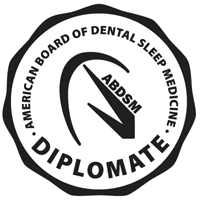Is your child’s hyperactivity related to sleep apnea?
The behavioral consequences of sleep apnea can be far more significant than most people realize
Children’s sleep apnea treatment Woodinville, Bellevue area
When people think about sleep apnea, most picture an adult. They may be aware that people who chronically snore could have sleep apnea, and that untreated sleep apnea is dangerous for a person’s health.
However, not everyone realizes that children can also have this disorder. Although estimates vary, experts believe that between 1 and 10% of children have obstructive sleep apnea. In many cases, both parents and medical professionals may not recognize the child’s symptoms as indicating a sleep problem, and so many of these children are misdiagnosed and don’t receive the treatment that they need.
Symptoms of sleep apnea in children
For adults who have sleep apnea, feeling tired during the day (despite having spent at least eight hours in bed) is often the primary symptom of sleep apnea, along with other symptoms of sleep deprivation (such as irritability and headaches). In some cases, this is what happens for children as well. However, for children, sleep deprivation can manifest in very different ways.
When they are sleep deprived, rather than acting like they have low energy, many children actually become hyperactive. Because this seems counterintuitive, parents may not suspect that their chronically hyperactive child is actually chronically sleepy. Most children are not able to accurately communicate how they’re feeling, making it even more difficult to know that a hyperactive child has a need for sleep.
It’s important to note that some children, particularly as they get into the older school age years, display symptoms of sleep deprivation that more closely match those of adults. Children with sleep apnea may show daytime sleepiness, lack of energy, irritability, and headaches.
Sleep apnea is linked to hyperactivity and poor school performance
There has been a rise in the number of children diagnosed with ADHD. In many cases, these children may actually have sleep apnea, or it may be a contributing factor to worsening the symptoms of ADHD. Studies have found a significant overlap between the symptoms of sleep apnea and both inattention and hyperactivity.
Untreated sleep apnea can have significant consequences for a child’s life. A 2018 study of a large group of more than 1500 children ages 5-10 found a significant association between poor academic performance and sleep apnea in children. Another study demonstrated that even mild sleep apnea significantly impairs the consolidation of memory in children.
The structure of the brain itself is affected on a large scale by sleep apnea. In fact, a 2017 study showed that children with sleep apnea had reduced brain volume in several areas of the brain, including those tied to self-control, memory, and mood.
Other possible symptoms of sleep apnea include bedwetting and sleep terrors
Sleep apnea often causes children to be very restless during sleep. You may notice that the child moves all over the bed or even falls out of bed during the night. Disturbed sleep may also lead to nighttime symptoms like bedwetting and sleep terrors.
In adults, frequent snoring is a very common symptom of sleep apnea. Children may also experience this, or parents may notice pauses in the child’s breathing during sleep. Chronically breathing through the mouth rather than the nose is another possible sign.
Do you suspect that your child might have sleep apnea? We offer children’s sleep apnea treatment Woodinville, Bellevue area
We are not suggesting that all hyperactivity is actually sleep apnea; there are many possible causes. However, if a child is struggling with hyperactivity and/or trouble paying attention, it’s certainly worth considering sleep apnea as a possible diagnosis. Similarly, children who continue to wet the bed frequently or who experience frequent sleep terrors should be evaluated for sleep apnea.
For children with sleep apnea, treatment can greatly improve their health, school performance, behavior, and even mood. Once they experience the positive effects of treatment, many parents’ response is, “I wish I had done this sooner.” Treatment options include surgery, a CPAP machine, or an oral device worn at night; learn more here.





